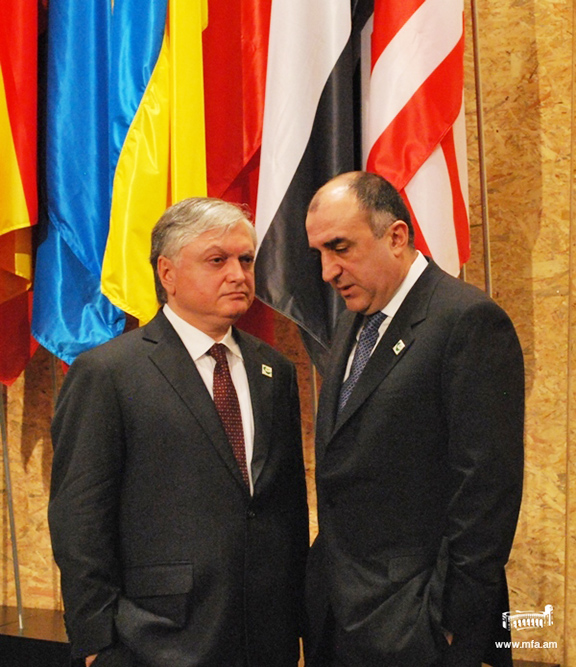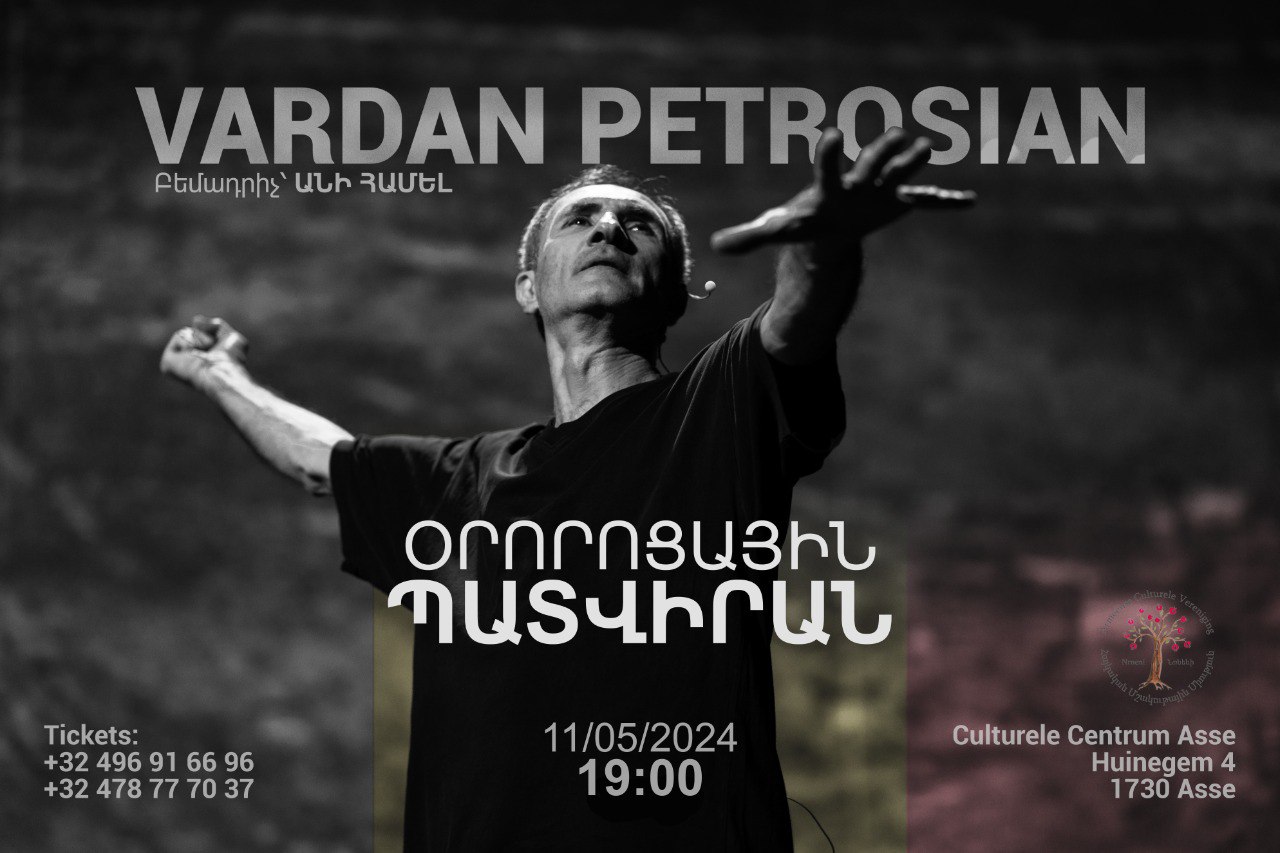Asbarez.com – 11/07 
BRUSSELS—Foreign Ministers of Armenia and Azerbaijan, Edward Nalbandian and Elmar Mammadyarov met on Tuesday to discuss the Nagorno-Karabakh conflict peace process.
The meeting, which was held on the initiative and presence of the OSCE Minsk Group Co-chairs Igor Popov, Stéphane Visconti and Richard Hoagland, which was attended by Andrzej Kasprzyk, the Personal Representative of the OSCE Chairperson-in-Office, was the first such meeting since a flare up border tensions escalated in recent weeks.
Armenia’s Foreign Ministry reported that during the meeting discussions were held on the modalities of advancement of the Nagorno-Karabakh negotiating process. Nalbandian reportedly underscored the importance of stabilization of the situation on the Line of Contact and in this regard emphasized the necessity to implement the agreements, reached during the Vienna and St. Petersburg Summits.
The Co-Chairs asked the ministers to convey to the presidents their proposal on organizing a summit during the course of this year. An agreement was reached to convene the next meeting between the Ministers in September in New York in the margins of the General Assembly of the United Nations. The ministry provided no other insight into the discussions, ahead of which, Nalbadian blasted Baku for failing to adhere to previously reached agreements and continuing to advance its military aggression against Artsakh positions.
Speaking at an informal ministerial summit of the OSCE earlier in the day in Mauerbach, Austria, Nalbandian urged the international community to take more “tangible measure to curb Azerbaijan.” “On July 4th the Azerbaijani leadership once again resorted to the tactics of notorious terrorist organizations and as many times before used its civilian population as a human shield for shelling the territory of Nagorno-Karabakh by heavy weaponry, including by multiple rocket launcher systems. In response, the Defense Army of Nagorno-Karabakh was obliged to exercise self-defense against the aggressive actions of the Azerbaijani side. Baku clearly demonstrated that it is not capable to comprehend the appeals of the Co-Chairs,” Nalbandian told the OSCE ministerial gathering.
While in Mauerbach, Nalbandian also met with his Russian counterpart, Sergei Lavrov and the two reportedly touched on the Karabakh conflict resolution process.
Speaking ahead of the Nalbandian-Mammadyarov meeting in Brussels, Artsakh presidential spokesperson David Babayan said that Tuesday’s meeting was important, but also said that Stepanakert was not expecting any major breakthroughs. “Expecting a serious step toward comprehensive resolution is too untimely, as Azerbaijan’s non-constructive stance, its explicit anti-Armenian policy leaves no room for that,” Babayan told Public Radio of Armenia. He added, however, that such meetings are very important in the sense that they ensure the continuity of the peace process. He also said that the meeting was a good platform for the superpowers represented by the Minsk Group chairing countries, to express their opinion, which is also important for the maintenance of peace and stability.
Speaking about the recent statements of the OSCE Minsk Group Co-Chairs, Babayan said the mediators are sending several messages to the parties. “First, they underline that any use of force is unacceptable. Second, there is progress with regard to concrete steps. We see a practice never used before,” said Babayan, explaining that in previous announcements the Minsk Group, in an effort to not further aggravate the situation, opted to use parity in it’s approach. Babayan pointed to a previous statement, in which the Co-Chairs clearly called out Azerbaijan for violating the cease fire. He also added that a recent announcement by the Russian Foreign Ministry warning Baku to end discrimination against Russian citizens with Armenian surnames, could also be seen as an indirect message.
Babayan said that Stepanakert was concerned with Russia’s sale of weapons to Azerbaijan, saying, “we have always been critical of supply of weapons to Azerbaijan not only by Russian, but also Israel, Pakistan and some Western countries.”
 Français
Français  Nederlands
Nederlands  Հայերեն
Հայերեն 







